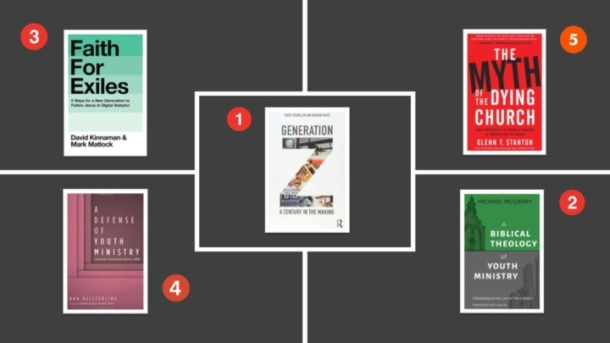5 Considerations for Ministry & Outreach to Kids from Broken & Dysfunctional Households During the Coronavirus Pandemic

I’ve seen so many posts on various social media outlets recently that the Coronavirus pandemic gives Christian parents the opportunity to truly disciple their own kids. Several posts list ways church youth workers are partnering with parents for the spiritual benefit of the kids. In some cases, those situations may indeed be true. However, since there is a growing number of broken and dysfunctional households in this country, the opposite may be happening instead.
Putting kids in overwhelmingly negative home situations for extended amounts of time during this Covid-19 time period may actually accomplish adverse and undesirable results. Almost every church youth worker I have spoken to personally in the last several months has agreed that they have an increasing number of children and teenagers in their churches from non-traditional households.
If your church is reaching out to unchurched and unsaved kids in your community, you undoubtedly have young people in this same situation. I hate to say this, but it may not be always a good thing for them to spend extra time at home.
Just this week a friend of mine who is a police officer near a large city told me that one of his biggest concerns during this pandemic is the potential increase of domestic frustrations and violence. Since most kids are out of school for prolonged time periods with no return in sight, there may indeed be young people that are a part of our ministries from negative and maybe harmful home environments.
Youth workers and other church leaders should think this through immediately. How can we reach out to the kids in our communities who may need the most help, and how can we minister to the kids in our church who are from those non-traditional, broken, and dysfunctional households? (For more information to ministering and reaching out to dysfunctional households see: https://blog.youthspecialties.com/5-big-ideas-for-ministry-to-increasingly-dysfunctional-households/.)
- Strategize with the other ministry leaders from your church to determine what resources you can offer during this crisis.
It is obviously true that your church probably can’t do everything that other churches may be trying to do right now. Your church needs to determine what specific things you can do well, and then create a way to implement those specific ideas. It’s really important for you to get the leadership team from your church on the same page.
Your expertise may be not high-tech where you can provide high quality video productions every day, but you may be able to use Facebook Live and your iPhone to provide the live streaming of your church’s Sunday morning service. Your church probably will not have the resources or personnel to do everything well, so it’s important to select and then execute the ministry strategies that you can do well during these difficult days.
It is very important for all churches to utilize both high-tech and low-tech ways to communicate with their people and with their communities during this pandemic. The hurting and struggling households in your church’s general area need to know that your church is concerned about them and that you have a specific plan in place to reach out to them. Churches must figure out what they can do to minister and reach out – and then launch a plan to implement those specific things.
- Develop a plan to effectively communicate what resources your church can offer.
Once you have worked with your leadership team to identify what resources you have to offer, you’ll need to develop a specific plan of how to effectively communicate what you are doing. It really doesn’t do any good for you to offer helps to hurting and dysfunctional households unless you can effectively communicate that those resources are available. Each church will need to figure out how best to communicate your contingency plans and action steps to the people you are trying to reach. If your church has decided to live stream your services, how will people know that you are doing that and where specifically can they locate that feed? For example, I just learned the other day of a church that prepared “care packages” for residents of a nursing home in their area only to find out that the facility would not allow outside groups to distribute anything to their patients.
It might be worth it to invest in new signage, or to pay for a community-wide mailing, or to insert an ad in the local paper or on a local radio station to communicate what specific endeavors your church is doing during this crisis. Current demographic trends indicate that your area probably has a large and growing number of hurting and non-traditional households. It will be crucial for your church to communicate what you are trying to do.
- Find ways that you can be a spiritual encouragement and help to those who need it.
You have probably seen a wealth of practical ideas that have been posted on social media recently touting projects churches are undertaking during the Cororavirus situation. That’s great – and church leaders, maybe especially youth workers, are to be commended for putting their creativity to work. But, let me emphasize one other area of caution here. Don’t forget that the grand mission of the church is to fulfill the Great Commission (see Matthew 28:19-20) and to equip the saints to do “the work of ministry” (see Ephesians 4:11-16). In other words, to borrow a phrase I’d heard often in recent days, “the church must be the church.”
Churches must look for ways to continue accomplishing the purposes of the church, like fellowship, worship, giving, preaching and teaching of Scripture, serving, and outreach. Just because our churches can’t gather on Sunday mornings doesn’t mean that we should cease to fulfill our God-given mission. Churches will need to think through creative and effective ways to share Christ’s love with a needy and hurting world.
- Recruit and utilize ways to involve other people from your church in ministry and outreach endeavors.
It’s really important to remember that none of us are superheroes with superpowers. It is imperative that we involve others in whatever our churches decide to do. Overloading our pastors, youth pastors, or our team of other volunteer youth workers right now is probably a long-lasting mistake. Don’t forget that their lives are probably in chaos now too. On the other hand, some of your church people may have extra time on their hands and they may be willing to get involved. Of course, it will be very, very important for you to do all you can to keep your volunteers safe and heathy. Our authorities have instituted “social distancing” for a reason and that is to protect people from spreading and catching this virus.
Our pastors may not be tech experts and they may not have the ability to serve as activity directors, or idea generators for parents with kids who are out of school. That’s why it is so important for your church to institute a plan to creatively involve volunteers to help with the variety of projects you want to implement.
The key here is to realize that each local church has a multitude of resources available to help non-traditional and dysfunctional households in the community in addition to the pastoral staff. This can include Godly older people to serve as mentors, and a team of other trained professional who could provide counseling or that could provide tangible physical assistance. This also might include the production of quality helps and resources to distribute to hurting community members.
- Remember to identify creative methods of outreach instead of just emphasizing ways to communicate with those who already attend your church.
I’m sure that you have noticed that so many of the recent social media posts have presented ways for churches and youth groups to communicate to people who are already a part of their ministries, and obviously that is important. But we cannot fail to take this opportunity to reach out to our neighbors and communities which contain a host of struggling households during these difficult days of anxiety and fear. Some churches are helping local school distribute homework and meals, others are taking small care packages to seniors, some are opening their buildings for small prayer meetings, and others are offering family and personal counseling sessions. I just heard of one church that is offering “drive in” movies and music in the church parking lot. There are many ideas out there. The key is to prayerfully consider what your church can do to reach out to the needy and hurting people in your community.









